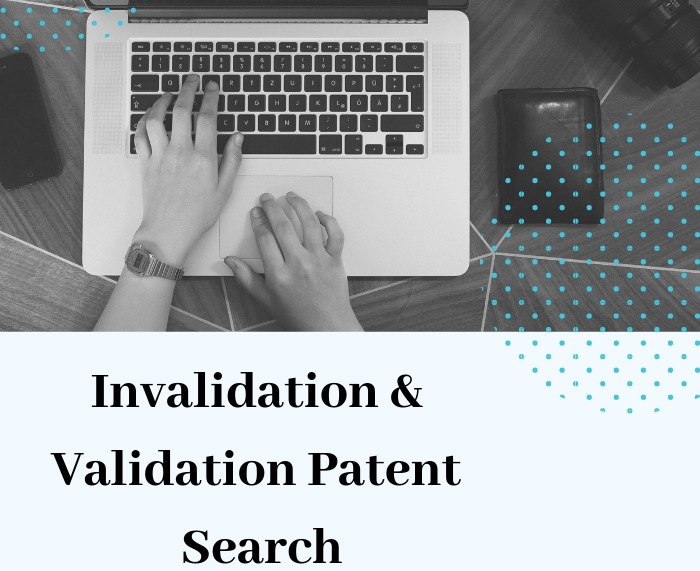Patent invalidity/validity searches are conducted to either validate the claims made by a patent or to invalidate one or more claims of a competitor’s patent. It is the first step taken by a company when faced with a patent infringement lawsuit. Validity searches are also conducted to check the strength of a granted patent while exploring the available licensing options.
An Invalidity Search is a prior art search done after a patent issues. The purpose of an invalidity (or validity) search is to find prior art that the patent examiner overlooked so that a patent can be declared invalid. As a searcher, we are expected to dig deep into the domain to find critical prior art overlooked by the patent examiner, which would allow the client to challenge another’s patent (“invalidity”) or be prepared to defend a patent infringement allegation by a competitor (“validity”).
The output of this type of search is considered as one of the possible options to decide and analyze the merits for defending an infringement suit faced by a firm/individual. For example, consider a firm named ABC, Inc filed an infringement lawsuit against a firm named XYZ, Inc stating the facts that manufacturing process adapted by XYZ, Inc is infringing the claim(s) of a patent granted to ABC, Inc”. As a prima facie XYZ, Inc may propose for an invalidation search and check if the claims are valid or if there is any publication before the priority date to invalidate the claims. Any relevant publication can be used to file a counter claim by XYZ, Inc and invalidate the patent granted to ABC, Inc.
Key points to conduct Validation/Invalidation Search
- Analysis of claims granted for the patent in question in the context of text and drawings of the specification.
- Extensive analysis of file history related to the patent to understand the grounds that lead to the grant of patent.
- Framing comprehensive search strategy (including keywords, critical date restrictions, and classification codes) to uncover the prior-art.
- Thorough review of prior-art publications to cross check the patentability aspects (Novelty and Non-obviousness) of the patent in question.
For more information on Invalidation & Validation Patent Search please Contact Us.

